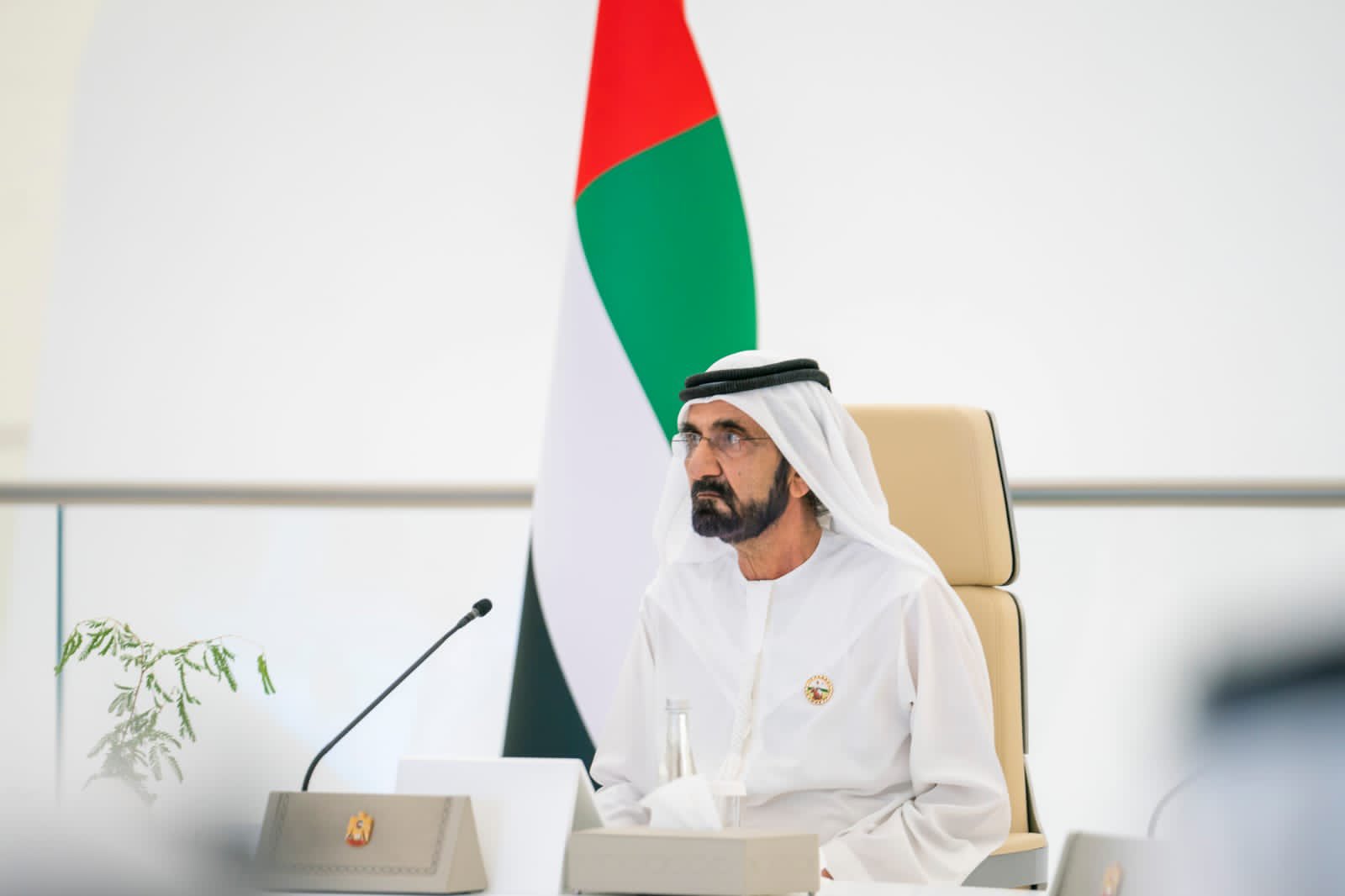Media Center
Mohammed bin Rashid approves UAE General Budget for 2022-2026 with AED290 billion expenditures
The UAE cabinet, chaired by His Highness Sheikh Mohammed bin Rashid Al Maktoum, Vice President, Prime Minister of the UAE and Ruler of Dubai, approved the UAE General Budget for the years 2022- 2026, with total expenditures of AED290 billion and the UAE General Budget for the year 2022, with AED58.931 billion expenditures.
The meeting, held today at EXPO 2020 Dubai, was attended by H.H. Sheikh Maktoum bin Mohammed bin Rashid Al Maktoum, Deputy Ruler of Dubai and Deputy Prime Minister and Minister of Finance; H.H. Lt. General Sheikh Saif bin Zayed Al Nahyan, Deputy Prime Minister and Minister of the Interior; H.H. Sheikh Mansour bin Zayed Al Nahyan, Deputy Prime Minister and Minister of Presidential Affairs and cabinet members.
The cabinet also approved the new government strategic approach that serves as a framework to lay the foundations of work for the next 50 years. His Highness Sheikh Mohammed bin Rashid Al Maktoum directed all government entities to adopt the new government strategic approach while setting priorities and developing projects and work plans.
During the cabinet meeting, the UAE General Budget for the years 2022- 2026 was also approved, with AED290 billion expenditures. The budget for the year 2022 was also approved, with AED58.931 billion expenditures.
The largest share of the 2022 budget was allocated to the development and social benefits sector at 41.2%, out of them 16.3% for education, 6% for social development, 8.4% for health, 8.2% for pensions and 2.6% for other services.
Some 3.8% of the budget has been allocated to the infrastructure and financial resources sector.
The cabinet approved the appointment of Highness Sheikh Maktoum bin Mohammed bin Rashid Al Maktoum, Deputy Ruler of Dubai and Deputy Prime Minister and Minister of Finance, Chairman of General Budget Committee and Chairman of the Federal Tax Authority Board of Directors. Mohamed Hadi Al Hussaini, Minister of State for Financial Affairs has been appointed in the board.
The cabinet approved the re-formation of the Emirati side of the executive committee of the Saudi-Emirati Coordination Council, headed by Sheikh Shakhboot Nahyan Al Nahyan, Minister of State and the membership of Minister of Energy and Infrastructure, Minister of Education, Minister of Industry and Advanced Technology, Minister of Economy, Minister of State for Financial Affairs, and the Deputy Secretary-General of the Supreme Council for National Security.
The cabinet also approved the appointment of Mohamed Hadi Al Hussaini, Minister of State for Financial Affairs, as Chairman of the General Pension and Social Security Authority and Chairman of the Etihad Credit Insurance.
Abdullah bin Sultan Al Naoaimi, Minister of Justice, has been appointed Chairman of the Judicial Coordination Council.
Dr. Ahmad Belhoul Al Falasi, Minister of State for Entrepreneurship and SMEs has been appointed Chairman of the Board of Trustees of the Higher Colleges of Technology.
Mariam Al Muhairi, Minister of Climate Change and Environment, has been appointed Chair of the UAE Council for Climate Change and Environment.
The cabinet also approved the re-formation of the Board of Directors of Emirates General Petroleum Corporation, chaired by Suhail Mohamed Al Mazrouei, Minister of Energy and Infrastructure, for a three-year renewable term.
The cabinet approved the establishment of the UAE Infrastructure and Housing Council headed by Suhail Mohamed Al Mazrouei, Minister of Energy and Infrastructure and membership of representatives from local governments and representative of the Executive Committee of the Initiatives of His Highness the President of the UAE.
The council is mandated to ensure integration and comprehensiveness in the planning and implementation of infrastructure and housing projects. The Council is tasked with developing a detailed study on housing needs over the next twenty years, the study should be presented to the cabinet within one month.
The cabinet approved the dissemination of cybersecurity standards developed by the UAE Cybersecurity Council. The standards aim at developing a comprehensive cybersecurity strategy and creating a safe and strong cyber infrastructure in the UAE.
The cabinet approved amending the Federal Law regarding the Imposition of a Federal Tax on the Imports of Tobacco and its Derivatives.


